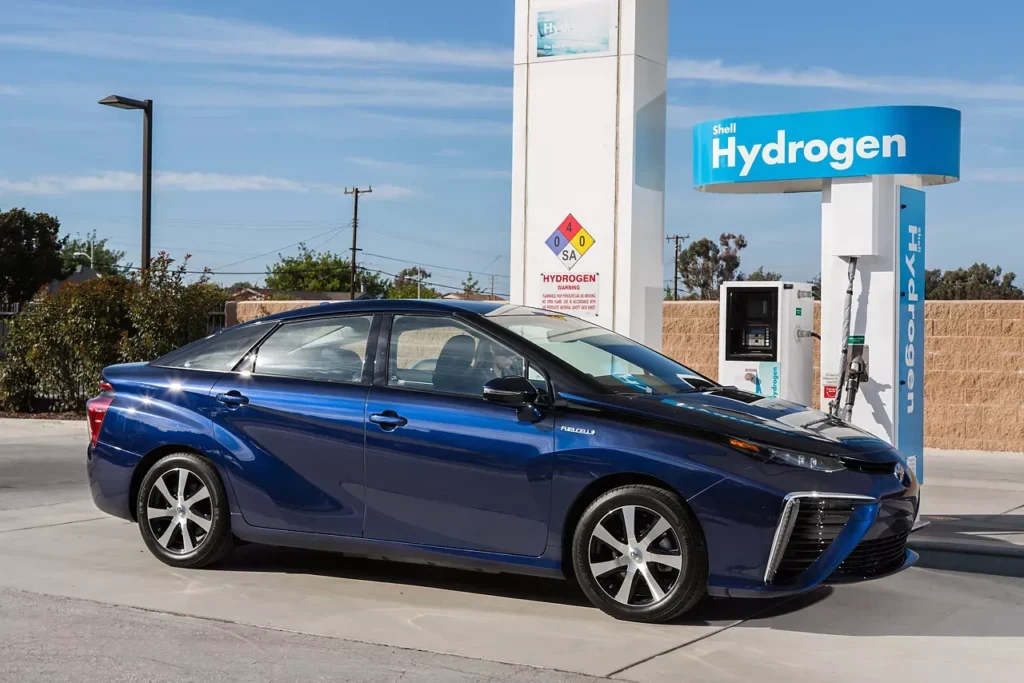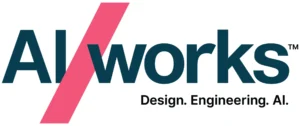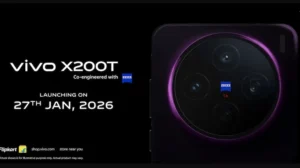For years, hydrogen cars have been marketed as the “cars of the future.” They promise long driving ranges, zero emissions, and quick refueling. Yet when you look around on the streets today, you hardly see any hydrogen-powered vehicles. Instead electric cars are taking over the world.So, what exactly are hydrogen cars, and what happend to them, Let’s break it down.
What Are Hydrogen Cars?
Hydrogen cars, officially called hydrogen fuel cell vehicles (FCEVs), that run on electricity but they don’t carry large batteries like Teslas, BYDs or any electric cars. Instead, they carry tanks of hydrogen gas. Inside the car, a fuel cell mixes hydrogen with oxygen from the air, producing electricity that powers an electric motor and by-product that comes out of this pure water vapor.
In Simple words hydrogen cars are basically electric cars that generate their own electricity.
The Promise of Hydrogen Cars
On paper, hydrogen cars sound like a dream come true, It provides solution to many of the challenges with Electric Car.
Fast Refueling – A hydrogen tank can be filled in 3 to 5 minutes, just like filling up with petrol or diesel.
Long Range – Hydrogen Car can give a travel range of over 600 kilometers on a full tank, which beats many mid-range Electric Cars.
Lightweight Energy Storage – Hydrogen tanks weigh much less than the giant lithium batteries inside electric cars, making them appealing for larger vehicles.
Hydrogen Cars were that good, So why aren’t they Popular?
Like a coin have two faces same thing happend with the Hydrogen Cars, Despite their promise, hydrogen cars have a number of hurdles that explain why you don’t see hydrogen Cars anywhere.
1.Very Few Refueling Infrastructure
It’s chicken-and-egg situation. For hydrogen cars to succeed, you need hydrogen stations. But fuel companies don’t want to build stations if there aren’t enough cars on the road. And buyers don’t want to buy cars if they can’t refuel easily.
At the moment. You can find Hydrogen Refueling Station in a few places like Japan, South Korea, Germany, and California and Outside of these region, it’s nearly impossible to own one.
2.Expensive and Complicated Production
Even when hydrogen is the most abundant element in the universe, producing it in usable form is not cheap and easy. Today, about 95% of hydrogen is made from natural gas, a process that still emits carbon dioxide.
3.High Vehicle Costs
Cost of making an Hydrogen car is also very expensive. The Toyota Mirai starts at around $50,000 in the U.S., and the Hyundai Nexo is in the same ballpark.Fuel cell stacks and high-pressure storage tanks are costly to build. In comparison, EV prices are falling rapidly as battery production scales up.
4.Electric Cars Are Winning the Race
Electric Cars got a huge head start. Companies like Tesla, BYD, and Volkswagen invested heavily in batteries and charging infrastructure and also Government poured subsidies into EV adoption. As a result, EV charging stations are spreading fast worldwide, while hydrogen stations lag far behind.
5.Storage and Safety Concerns
Hydrogen must be stored at very high pressure (700 bar or 10,000 psi). While tanks are extremely strong and safe, the perception of hydrogen as “explosive” makes some consumers nervous.
The Few That Exist Today
Currently, the most well-known hydrogen cars are:
- Toyota Mirai – One of the first widely available hydrogen sedans.
- Hyundai Nexo – An SUV with over 600 km range.
- Honda Clarity Fuel Cell – A sedan, though Honda has scaled back production.
These cars moslty sold in regions with some hydrogen infrastructure. For example, California has around 55 hydrogen stations, and Japan is aggressively pushing the technology as part of its national energy strategy.
My Verdict – ( The Road Ahead )
Hydrogen cars are a fascinating technology that proves there’s more than one way to build a clean vehicle. So, will hydrogen cars ever become mainstream? It’s nearly Impossible because Electric Cars are improving quickly, with faster charging and cheaper batteries. By the time hydrogen infrastructure is widespread, EVs may already have solved most of their drawbacks.
Most experts now believe the future of hydrogen lies in trucks, buses, ships, and factories rather than your next family car. For everyday drivers, battery-powered EVs will likely continue to dominate the car market.




